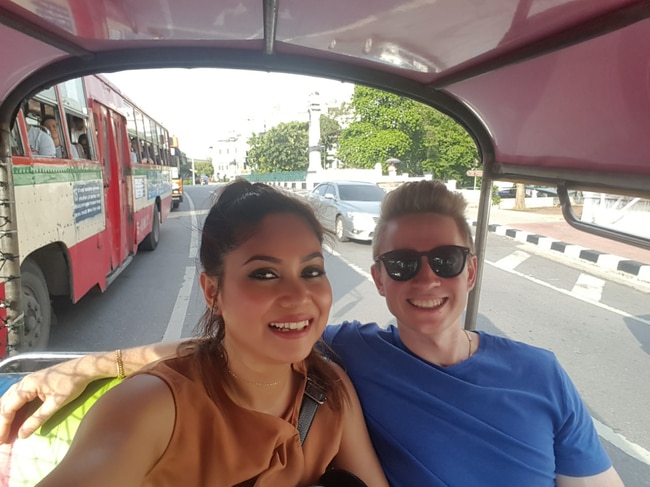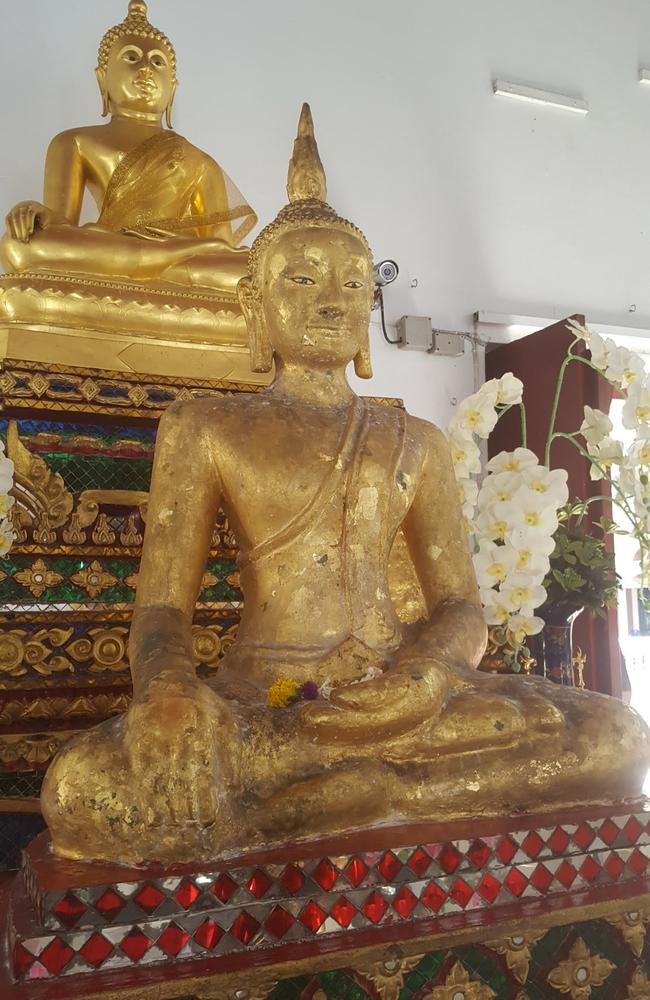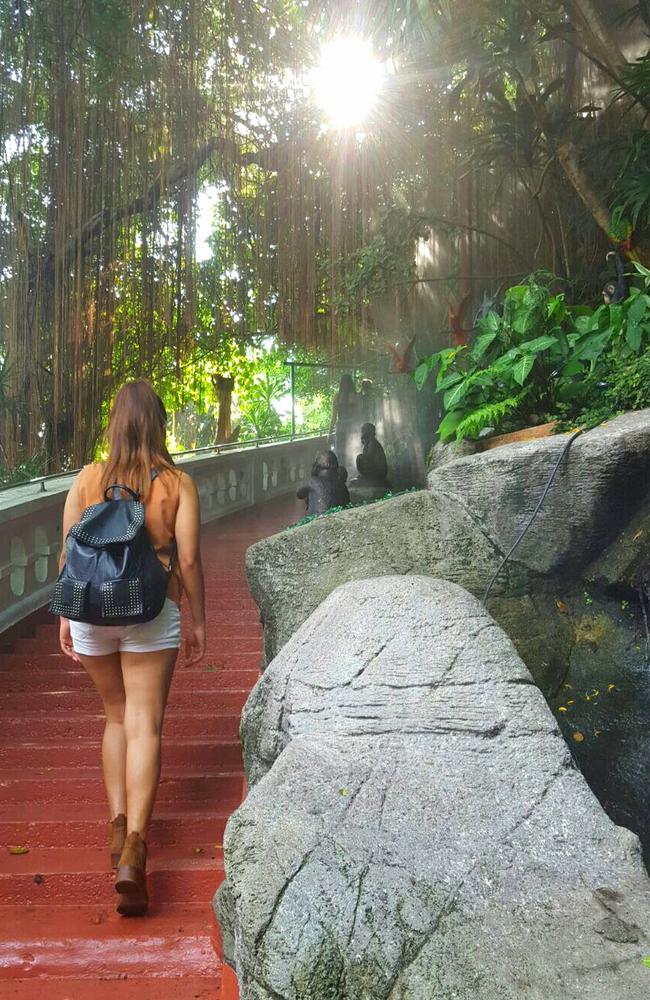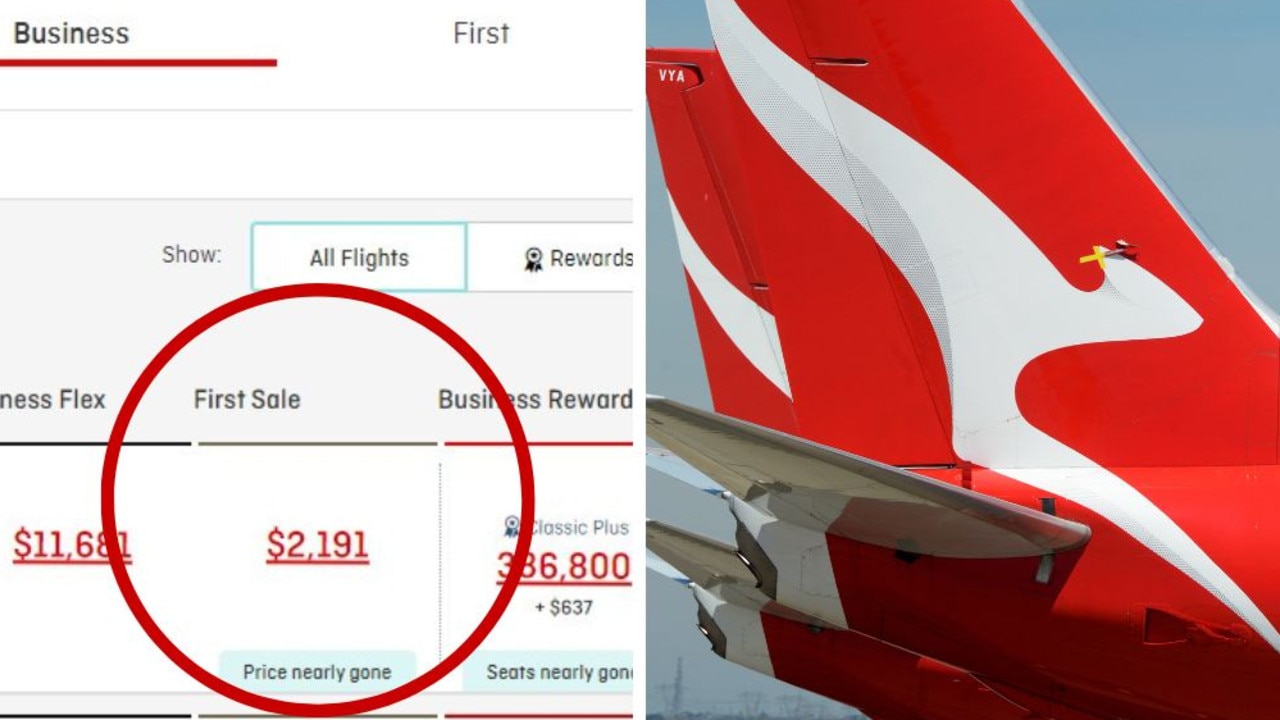The most common scams targeting Australians in Thailand
AUSSIE pilot Dan Boland thinks he’s savvy about travel scams, but on a recent trip to Thailand, con artists got him good.
WHEN Australian tourist Dan Boland was approached by a friendly stranger outside a Bangkok temple, he had no idea he was about to fall victim to an elaborate scam that would trick him out of thousands of dollars.
The Hong Kong-based airline pilot would later realise he’d been swindled in a clever “attractions closed” scam. It’s one of a number of ways cunning con artists are preying on Western tourists in Thailand, according to insurance company Travel with Jane.
Mr Boland said he and his wife were approached by an official-looking man as they were entering Bangkok’s famous Wat Pho temple on their last day in the city back in May.
“The man said, ‘Sorry, no, you can’t go in because the monks are praying’, and I thought, oh well, I can’t argue with that,” Mr Boland told news.com.au.
“He said it was the same thing at the Grand Palace — we couldn’t go in because people were praying.
“So he said, ‘You can go to the Black Buddha’. He said we could take a tuktuk and it was only 15, 20 minutes away and would only cost 100 baht, about $4. He pointed to a tuktuk driver who was conveniently out the front.

“He said the Black Buddha was the oldest Buddha in Bangkok and open only that day — out of 365 days of the year. I should have thought that was weird. But I just thought we were lucky.”
The man also told the couple before they left Bangkok they had to visit the “Export Centre”.
“He said they sold everything there, suits, really good jewellery, blue sapphires from Thailand, it was so good,” Mr Boland said.
The tuktuk driver drove the couple to the “Black Buddha” — which turned out to be an underwhelming gold statue — and just as they were leaving, they were approached by another man.
This man struck up a friendly chat with couple and also insisted they visit the so-called Export Centre.
“We were like, all right, you’re the second person to tell us that, it must be good,” Mr Boland said.
“It was just down the road. The tuktuk guy was waiting for us and took us there.

“(The export centre) was down an alley and behind these old tinted windows. We walked in and half of it was a tailor and half was a dank, depressing, poorly lit jewellery store.”
Mr Boland said he was talked into buying two suits, at $500 each, while his wife was convinced to buy some blue sapphires at a cost of more than $2000.
“The lady put the hard sell on her and said if you took them back to Hong Kong or Australia, you could sell them for ‘X’ amount more than you paid for them,” Mr Boland said.
“It was coming up to her birthday so she decided to get herself a present.”
Later, as the couple discussed their day over beers, it dawned on them they had been swindled.
“It all happened too perfectly,” Mr Boland said.
“I said to my wife, how did we meet all those people who spoke perfect English, and yet every other day no one here speaks a word of English?
“And we started piecing it together. Why was everyone talking about the Export Centre? That place sucked.
“I called my best friend and he was like, ‘Are you serious dude? You idiot, that’s a scam’.”
The couple later had the blue sapphires valued and found out they were worth only a couple of hundred dollars.
Mr Boland said he has since learnt more about the scam and discovered there were many different “Black Buddhas” and “Export Centres” around Bangkok swindled tourists were taken to.

“I travel the world and I always think I’m not going to get scammed, but this was so intricate and these are some really skilled people,” said Mr Boland, the founder of travel deals site Holidayers.com.
“It’s important not to get yourself into too many situations where you’re too open to accepting advice from people. Be wary they may have some ulterior motive.
“Another red flag is when someone really wants to get to know you and they offer you something. Just say no politely and keep walking, because I think for Westerners the more we talk to someone, the more we feel bad about walking away. But we have to learn just to say no.”
HOW SCAMMERS CAN GET YOU
The jewellery scam
Michelle Legge from Travel with Jane said the Bolands had been tricked in a jewellery scam, one of the common scams operating in Thailand right now.
“(This) entails buying what the customer is lead to believe genuine and extravagant jewels at a highly discounted price,” she told news.com.au.
“The best way (to avoid) this is to not buy any form of luxury items while overseas. While you may think you’re getting a really great deal that is far too good to be true, then it probably is.”
The “attractions closed” scam
As in Mr Boland’s experience, this happens when a local tells a tourist a popular attraction or venue is closed because of religious holidays or revocations.
“Once they have convinced the tourists to go to another great attraction they charge the tourists an entry fee and travel fee which can be very overpriced,” Ms Legge said.
“If you are ever approached by a local, instead of taking their word, thank them and move on. If you would like other advice on other places to attend, or (to find out) if it’s actually even closed, go to a local tourist or activities shop for advice, or your hotel. Do not source (information) from the streets.”

The rental/jet ski scam
In this case, tourists are accused of damaging a bike or jet ski they rented, and in some incidents they’re threatened with violence unless they pay hefty compensation.
The Department of Foreign Affairs and Trade said many Australian travellers have reported harassment and threats of violence by jetski operators on tourist beaches in Phuket, Pattaya, Koh Samui and Koh Pha Ngan.
Ms Legge said travellers should take photos of the item before they handed over their money, to use as proof in case of a dispute.
“If you happen to rent a bike overnight be sure to use your own locks, do not tell them the name of the hotel you’re staying at and keep (the item) in a safe place — this will avoid the owners stealing it while you’re asleep and demanding money,” she added.
“If you do happen to damage the rental, take it to a repair shop of your own rather than recommendations from the owners itself. This way you know that it has not been organised between the two different parties to cash in on a scam.
“It’s also really important to make sure you are looking to hire or rent from reputable companies that insist of safety such as wearing helmets.”
The fake consulate scam
This scam targets some tourists crossing the border from Thailand to Cambodia in a taxi or tuktuk.
Travellers will often pass a large sign reading “Cambodian Consulate” and the driver may stop out the front of a large house with enthusiastic employees offering visas for a large fee.
These visas are fake and no use to you, so don’t even bother getting out of the vehicle.




